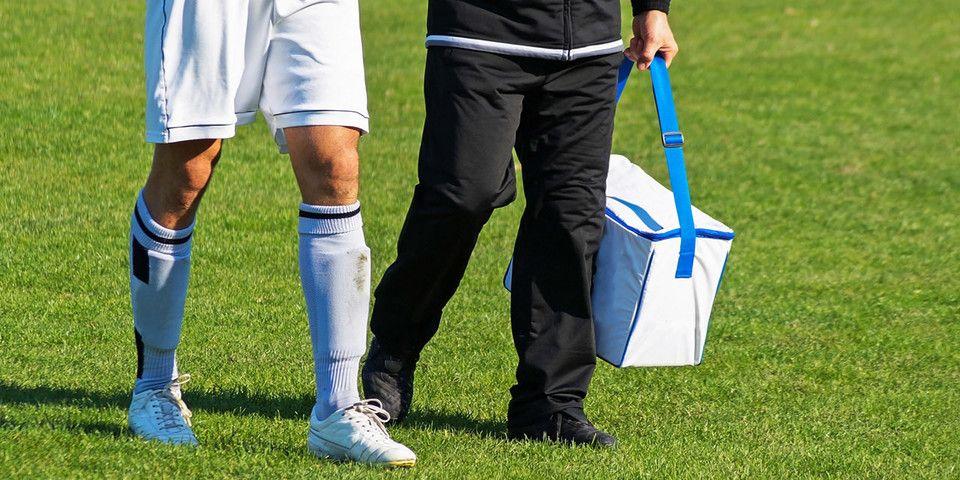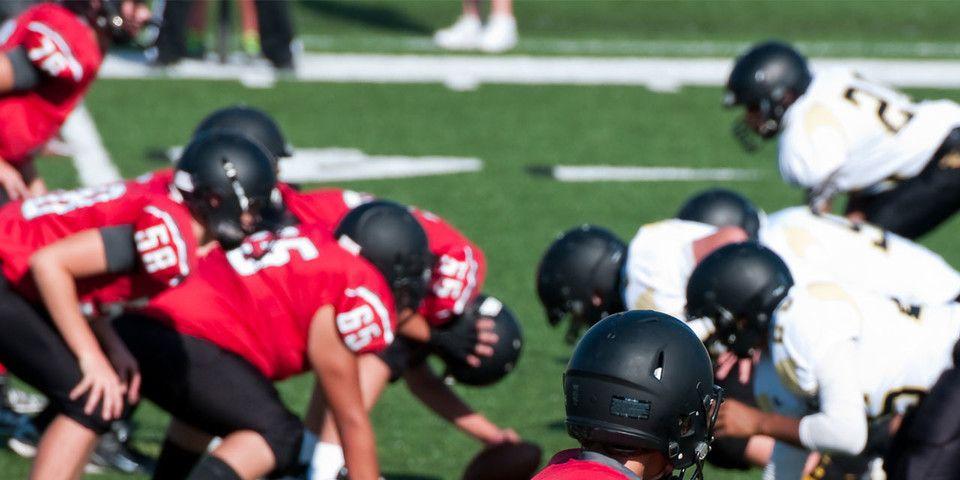Can You Really Get Spondylolysis from Playing Volleyball?
Learn the truth about spondylolysis and other sports career-limiting back injuries.
Repetitive forces and extension movements are a regular part of training and competition, meaning that some degree of back pain is to be expected for volleyball and other athletes. Most often it’s a simple case of muscle strain, but sometimes, a more serious condition known as spondylolysis is the culprit. Whatever the source of your pain, Rothman Orthopaedic Institute provides vigorous, compassionate care for athletes who’ve developed spondylolysis from playing volleyball and help them get back in the game as soon as possible.
How Do Players Get Spondylolysis From Playing Volleyball?
Spondylolysis occurs when a fracture forms in the bony ring on the back of the spinal column, usually in the low back. Low back pain in athletes with spondylolysis tends to be most common in football players, gymnasts, wrestlers, and volleyball players. In volleyball, the cause is often excessive or repeated strain, but an acute trauma can also generate such a fracture. Older adults may develop a form of spondylolisthesis that is degenerative in nature.
In any spondylolysis patient, the condition can progress to a complication called spondylolisthesis, in which the bone actually separates at the fracture site and the affected vertebra slips forward over the one below it. This can result in a narrowing of the spinal canal, creating pressure on the nerves and potential neurological problems.
What Are The Warning Signs?
The most common symptom for athletes who incur spondylolysis from playing volleyball is lower back pain that does not resolve in the normal healing time for a back sprain or strain. Pain typically occurs as a dull aching or cramping sensation in the lower back which is aggravated during standing and/or movement of the trunk/core muscles.
Any of the following warning signs warrant further evaluation by a physician:
-
Back pain that fails to resolve or gets progressively worse
-
Pain which radiates to the legs or causes weakness
-
Pain which affects your balance or walking
-
Changes in bladder or bowel function
How Is It Treated?
When an athlete is diagnosed with spondylolysis from playing volleyball, the immediate concern is managing the pain and reducing inflammation. To this end, a physician often prescribes nonsteroidal anti-inflammatory drugs NSAIDs and acetaminophen as well as restriction of activity. If needed, the physician will sometimes recommend immobilization by means of a specific type of brace called a thoracolumbosacral orthosis (TLSO).
Spondylolysis fractures can most often heal with time. Sometimes, however - especially in severe cases where spondylolisthesis has developed - these more conservative measures do not generate the needed results. For these athletes, a doctor may recommend surgery to repair the injured vertebrae and prevent interference with other areas of the spinal column.
Can It Be Prevented?
Cases of spondylolysis from playing volleyball are treatable, but even better is avoiding the injury in the first place. Some ways to reduce your risk of suffering a serious back injury in sports include:
-
Athlete education to raise awareness and eliminate risky behaviors
-
Strength training geared to sport-specific demands on the musculoskeletal system
-
Professional input regarding proper form and technique
-
Proper warm-up and cool-down stretches before and after every practice and match
-
Adequate sleep plus at least two rest days per week and two months off per year
-
Cross-training in other activities that work a different set of muscle groups
-
Consistent hydration and balanced eating plans with plenty of protein and produce
Playing sports with spondylolisthesis or spondylolysis that continues to cause pain and weakness can lead to permanent injury. If you or someone you love is at risk for spondylolysis from playing volleyball, or if you are already experiencing any pain, your first step should be to consult your physician right away. For more specialized treatment, visit us here or contact us at 1-800-321-9999.
Author
Related Physicians
- All Specialties
- Hip
- Knee
- Spine
- Sports Medicine
- Shoulder & Elbow
- Foot & Ankle
- Hand & Wrist
- Physical Medicine & Rehabilitation
- Orthopaedic Oncology
- Orthopaedic Trauma & Fracture Care
- General Orthopaedics
Physician Language
- All Languages
- English
- Persian
- Spanish
- Italian
- Chinese
- German
- Tamil
- Turkish
- Taiwanese
- Mandarin
- Hindi
- Punjabi
- Korean
- Gujarati
- Arabic
- Telugu
- Vietnamese
- Swedish
Filter Physicians
Search
Specialties
- All Specialties
- Hip
- Knee
- Spine
- Sports Medicine
- Shoulder & Elbow
- Foot & Ankle
- Hand & Wrist
- Physical Medicine & Rehabilitation
- Orthopaedic Oncology
- Orthopaedic Trauma & Fracture Care
- General Orthopaedics
Physician Language
- All Languages
- English
- Persian
- Spanish
- Italian
- Chinese
- German
- Tamil
- Turkish
- Taiwanese
- Mandarin
- Hindi
- Punjabi
- Korean
- Gujarati
- Arabic
- Telugu
- Vietnamese
- Swedish
Please select your region to view available physicians.
Select Your Region- All Locations
- {{item.title}} {{distanceText(item)}}
Sort
Related Specialties
Related Conditions
Related Programs
-

Athletic Training- Sport Medicine Outreach
Our Field Athletic Trainers provide direct sports medicine care to youth, high school, college and professional athletes. Rothman AT’s provide athletic training services throughout Southeastern PA to interscholastic high schools, colleges, as well as tournaments and special events.Read More -

Injury Prevention Program
The Injury Prevention Program at the Rothman Orthopaedic Institute is dedicated to the prevention of injuries from athletic participation, particularly youth sports.Read More




